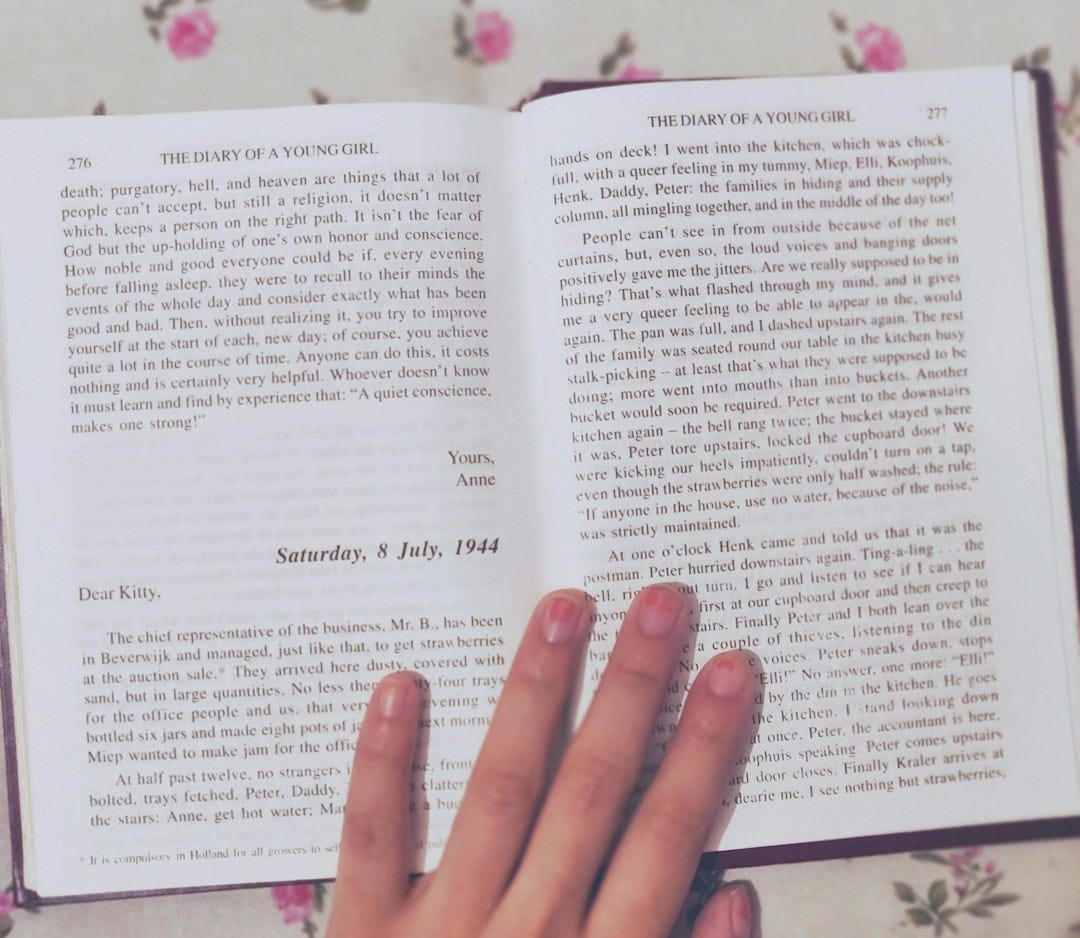What Does Anne Frank Mean?
I used to know what Anne Frank stood for but the reputation of the teenage diarist has evolved to the point where she might no longer mean anything at all.

Over a dozen years ago, Nathan Englander published a short story in The New Yorker called, What We Talk About When We Talk About Anne Frank. The story follows two couples, one Orthodox, one secular, who get high and …
Keep reading with a 7-day free trial
Subscribe to Leah Eichler to keep reading this post and get 7 days of free access to the full post archives.




